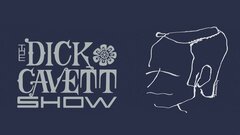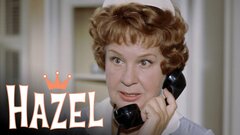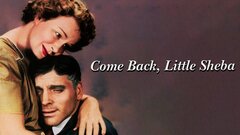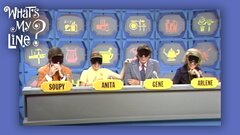A celebrated Broadway star of long standing, Shirley Booth graced two TV series and a handful of films with her warm, if often acerbic, presence. Leaving high school to pursue acting, Booth appeared in over 600 plays in stock before her career really got off the ground. Her Broadway debut came in the 1925 "Hell's Bells" (which also featured newcomer Humphrey Bogart), but it wasn't until a decade later that she enjoyed her first major success in George Abbott's Runyonesque comedy, "Three Men on a Horse" (1935).
Booth's fortunes improved considerably after she originated the role of intrepid news photographer Liz Imbrie in the Broadway smash "The Philadelphia Story" (1939), starring Katharine Hepburn. Other notable Broadway roles followed: a wisecracking writer in "My Sister Eileen" (1940); an anti-fascist teacher in "Tomorrow the World" (1943); a vivacious gossip columnist in "Hollywood Pinafore" (1945); and, in a Tony-winning performance, the sophisticated secretary to a US congresswoman in "Goodbye, My Fancy" (1949).
The most important role of Booth's career came in 1950 with the Broadway production of William Inge's "Come Back, Little Sheba," in which she played a slovenly, gabby housewife wistfully hanging onto her illusions (embodied in her runaway dog, Sheba) and inadvertently driving her husband to drink. She recreated the role (to Oscar-winning effect) in Daniel Mann's film version and acted in several other features, notably "The Matchmaker" (1958), based on the Thornton Wilder play which later became "Hello, Dolly!".
Although Hollywood briefly tried to make a character star out of the dumpy, likably plain-Jane Booth, "About Mrs. Leslie" (1954), a watchable soap opera, didn't quite prove the item for the task at hand. In Booth's later years TV proved the ideal medium for her combination of ready recognizability and sincere, forthright sentiment. For many TV viewers, Booth is best remembered as "Hazel" (NBC 1961-65; CBS 1965-66), the housekeeper extraordinaire forever warning "Mr. B" (Don DeFore) about the dangers of domestic life and undercutting his authority at every opportunity.


















































